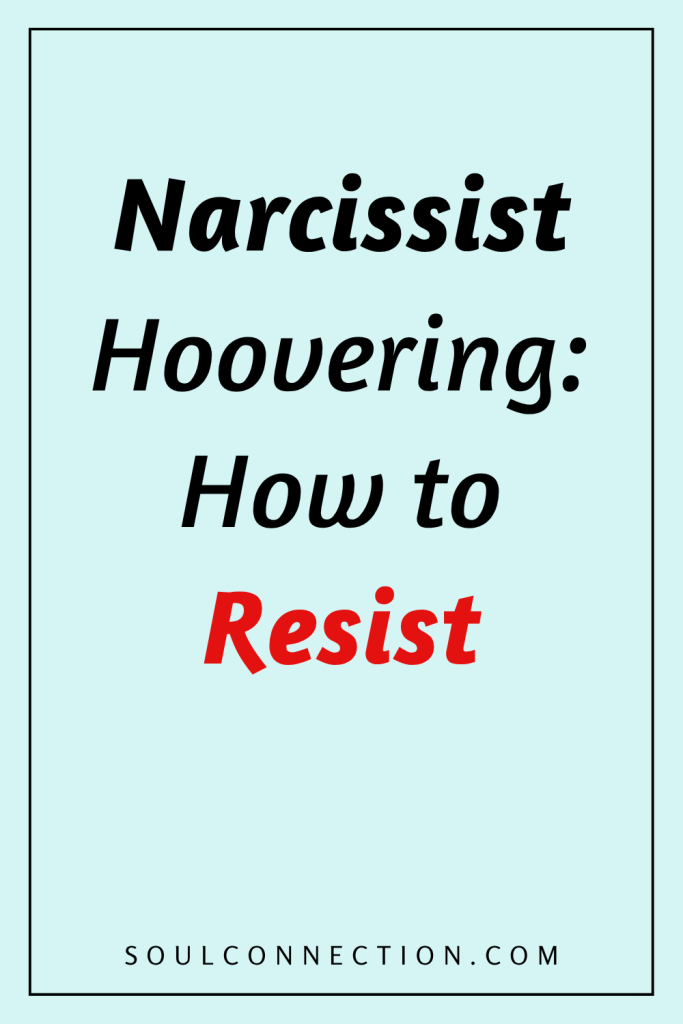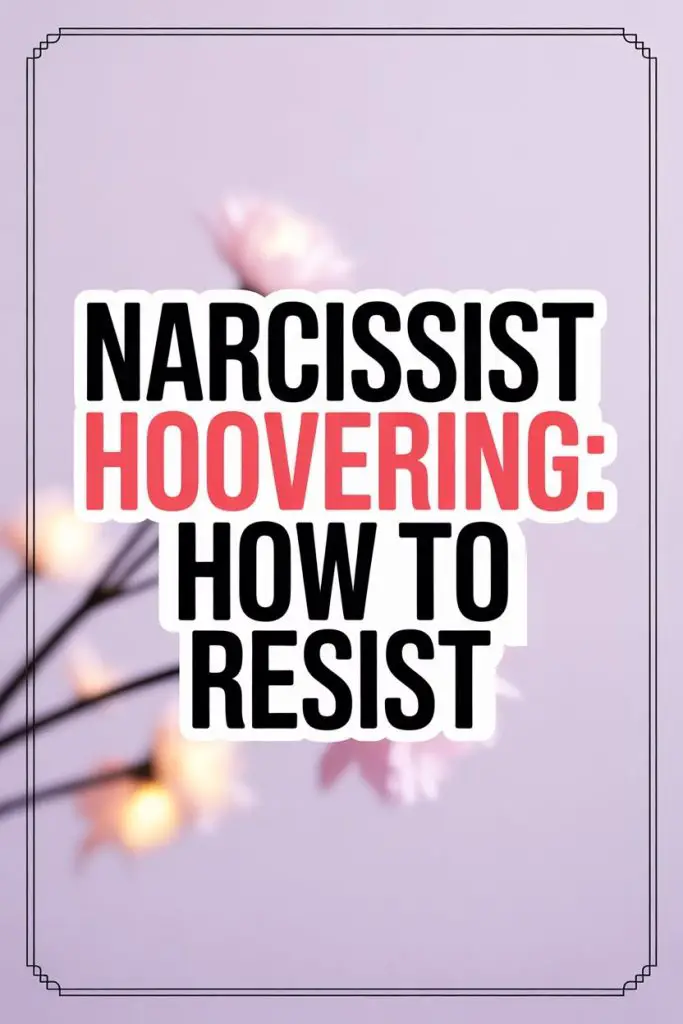If you’ve ever left a toxic relationship and found yourself fielding a barrage of “I miss you” texts, emotional guilt-trips, or suspiciously nostalgic DMs, chances are you’ve been hoovered.
Narcissist hoovering isn’t a new TikTok dance—it’s the manipulative, vacuum-like tactic that toxic folks use to suck you back into a relationship you bravely escaped.
Surviving hoovering requires more than just blocking a number. It’s about wit, willpower, and a bit of cheeky resolve.
Welcome to the art of dodging the emotional Dyson. Pull up a metaphorical chair.
What Is Hoovering, Really?
Narcissists hate losing control (shocking, right?). When their supply walks away, they rarely sigh, wish you well, and knit a scarf in your honor.
Instead, they deploy hoovering: a calculated attempt to reel you back in using charm, guilt, seduction, or even threats.
Imagine an ex who spent six months ignoring your birthday suddenly texting, “Remember our song? I heard it and thought of you.” It’s not nostalgia; it’s a lure.
Sometimes they use grand gestures, love bombs, or photos of your old dog “just to see if you’re okay.” The goal? To re-establish their power. Not to reconnect meaningfully.
The Many Faces of Hoovering
Hoovering doesn’t always come with a neon sign. Sometimes it’s cloaked in romance, sometimes regret, and sometimes the subtle shade of “just checking in.” Here are a few favorites from the narcissist playbook:
- Over-the-top apologies (“I’ve changed! Therapy is my new hobby!”)
- Sudden gifts or flowers at your workplace (awkward for you, Oscar-worthy for their social media story)
- Playing the victim card (“I’m lost without you”)
- Subtle guilt-tripping (“I guess I was never enough for you”)
- Triangulation (“Even your mum thinks we should get back together”)
- Crises real or manufactured (“I’m in the hospital, and you’re the only one I trust”)
Each method is designed to trigger a reaction—any reaction. If you respond, you’re back in the game.
Why Hoovering Works (Until It Doesn’t)
Narcissists are masters of psychological tug-of-war. They know your soft spots. Maybe you’re compassionate, or maybe you hate unresolved endings. Hoovering exploits your empathy, nostalgia, or simple curiosity.
The biggest kicker? Even after months of healing, a single message can bulldoze your resolve.
That’s because hoovering preys on the very human need to feel seen and valued—even by someone who previously treated you like an emotional dartboard.
Recognizing Your Triggers
Everyone has a weak spot. For some, it’s the guilt trip. For others, it’s the “I’ve changed” speech. Pinpoint what makes you want to reply.
Does a message about the dog flip your switch? Find yourself missing those silly inside jokes? Spotting your triggers is like learning where your psychic armor has a dent.
You can’t resist what you don’t recognize. Take a mental inventory: What contact tempts you most? Flattery? Apologies? Shared history?
Jot them down, if needed, and don’t be shy about how embarrassingly simple they might seem.
The No Contact Commandment
If you want to break free, no contact is your holy grail. This isn’t just about silencing your phone. It means blocking, deleting, unfollowing, and removing mutual connections who act as flying monkeys.
No contact feels harsh, especially if you’re a “let’s stay friends” type. But narcissists see friendliness as a loophole. If you must communicate (shared kids, work ties), limit replies to the bare minimum—a digital shrug, if you will.
Watch out for the sneaky side doors: new email addresses, fake accounts, messages via mutual friends. You’re not rude; you’re protecting your peace. (You wouldn’t leave your door open for a raccoon with a grudge, right?)
Building the Bouncer at Your Emotional Door
You resisted the urge to reply. Gold star. Now, how do you keep it that way? Imagine your emotional boundaries as the velvet rope outside a VIP club.
Narcissists will try to sweet-talk the bouncer (that’s you) with promises and sob stories.
Write a mantra and stick it on your fridge: “Not my circus, not my monkeys.” When tempted to answer, repeat it. Remind yourself of the chaos you left behind.
If you have a trusted friend, make them your accountability partner. Shoot them screenshots when you get hoovered—they’ll remind you why you left.
Use the Grey Rock Method
Narcissists thrive on drama. If you must reply, channel your inner grey rock—uninterested, unremarkable, and utterly dull.
Keep responses brief and factual. No emotion, no elaboration. “Noted.” “Okay.” “Received.” It feels unnatural, but narcissists get bored when their hooks don’t land. Before long, they move on to more reactive prey.
Set Clear Boundaries and Repeat as Needed
Boundaries are not suggestions; they’re rules. Be explicit: “Please don’t contact me unless it’s about [insert necessity].” If they ignore this, block and repeat.
Expect pushback. Narcissists test limits. They’ll escalate or switch tactics. Consistency matters more than clever wording. Don’t explain, justify, or debate. You owe them nothing but silence.
Self-Care: Not Just Bubble Baths
After a hoover attempt, emotions can run wild—anger, guilt, longing, even amusement. Prioritize your wellbeing.
Take a walk, call a mate, journal about the nonsense. Physical movement and laughter work wonders.
Self-care isn’t all lavender candles and yoga. Sometimes it’s watching trashy telly, eating chips, or playing video games.
Whatever helps you process, do it. This is emotional first aid, not indulgence.
Don’t Fall for the “Changed” Act
Narcissists can put on a dazzling transformation show. Therapy, personal growth, the whole “I’ve seen the light” routine. Spoiler: real change takes years and rarely involves love-bombing an ex.
Ask yourself: What evidence do you have that change has occurred? One emotional voicemail doesn’t rewrite history.
If you’re tempted to buy the ticket, remember the last ride. It’s the same funfair, just with new neon lights.
Surround Yourself with Sanity
Hoovering messes with your head. You might start doubting your choices or feeling nostalgic for the few good times. This is normal.
Seek out people who remember the bad times, too—the friends who watched you cry or heard the same apology seventeen times.
Share your experiences with a support group or therapist. You’re not “dramatic” or “overreacting,” you’re recovering from emotional warfare. Sanity loves company.
Blocking Is Not Petty
Worried that blocking your ex makes you the bad guy? Newsflash: protecting your peace is not mean-spirited. You’re not running from conflict—you’re refusing to play the same old game.
If you feel guilt or shame, remind yourself that narcissists weaponize “politeness.” Being “nice” won’t protect your heart. A clean break is an act of self-respect.
When Hoovering Turns Scary
Most hoover attempts are emotionally loaded but not dangerous. If things cross into threats, stalking, or harassment, safety comes first.
Reach out to professionals, document everything, and notify authorities if needed.
You’re not being dramatic. You’re being safe. There’s a difference between an annoying ex and someone who can’t take a hint.
Reclaiming Your Narrative
Hoovering is a test of boundaries, resilience, and wit. Each ignored message, each blocked number, is a step toward your own story—one where you’re the main character, not the supporting act in someone’s drama.
Some days will be easier than others. That’s normal. Just remember: every time you resist hoovering, you reinforce that the door is shut and the vacuum is out of order.
You’re not heartless; you’re healing. No apologies needed.
The Clean Air After Hoovering
Freedom from hoovering doesn’t just give you space from your ex—it gives you back your peace, your time, and your sense of humor.
Soon, you’ll notice you’re not flinching when your phone buzzes. You’ll laugh at the audacity of that “just checking in” message. Maybe you’ll even start to forget what their latest excuse was.
You deserve relationships that don’t require a user manual or a restraining order. Take a breath. Enjoy the silence.
And if you ever need a reminder, this page isn’t going anywhere—unlike the narcissist, who eventually gets bored and looks for a new audience.
Here’s to clean air and closed doors. Keep resisting. You’re worth the effort.


